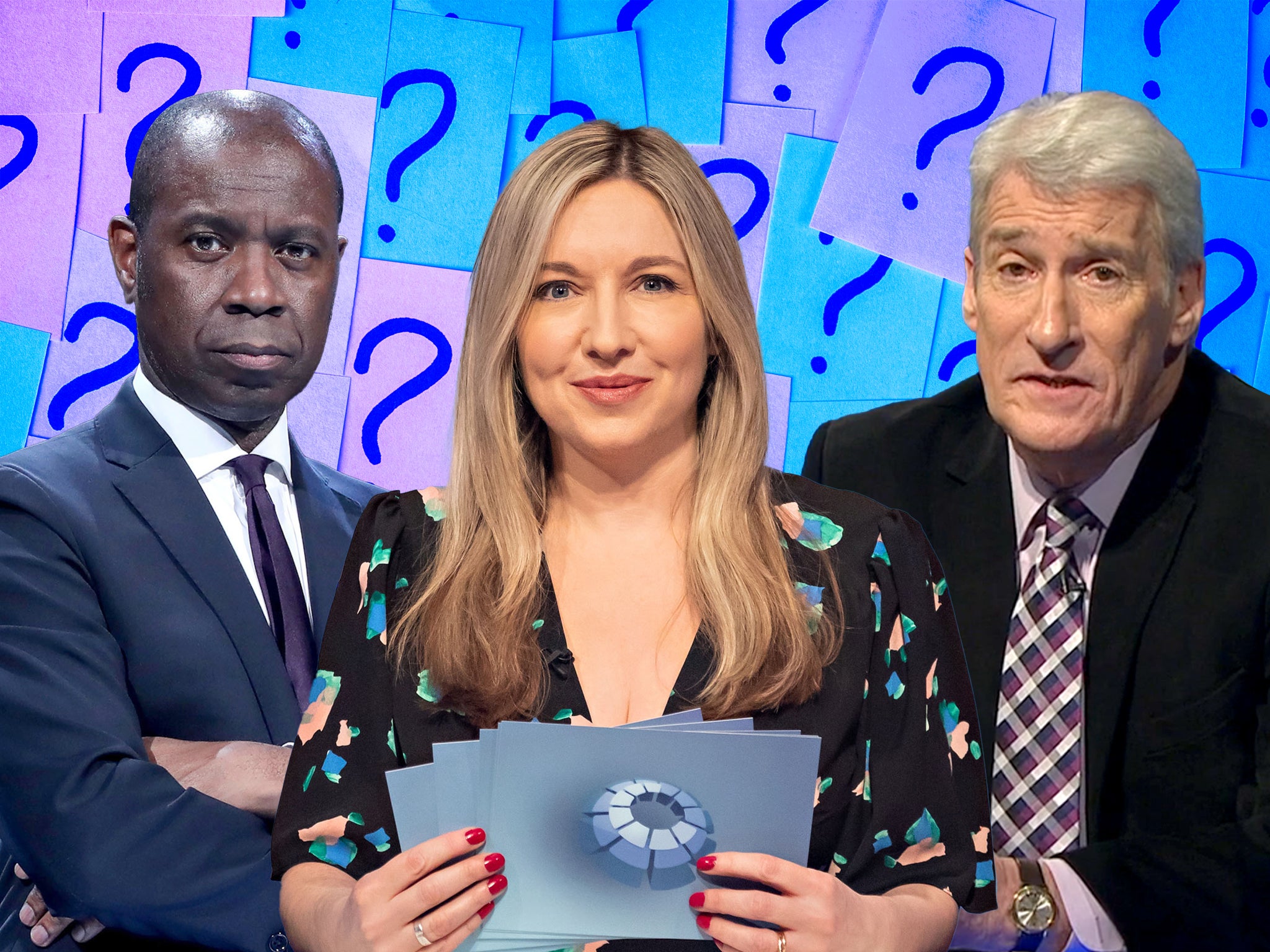Confederacy of dunces: How the Monday night quizathon shows our glorious stupidity
From ‘Mastermind’ and ‘Only Connect’ to ‘University Challenge’, the British love a quiz. But is it fun? asks Ed Cumming. Is getting questions mostly wrong an entertaining way to spend 90 minutes on a Monday night?


On Monday nights during the festive season, millions of otherwise sane and well-adjusted Brits settle down in front of BBC Two for a sick and twisted ritual. Some with cups of tea, many with glasses of wine, the majority – I expect – with their reading glasses on. At 7.30pm, the first of three famous theme tunes sounds, timpani banging like a starter’s pistol, and Mastermind begins. Thrusting brainiacs sit in a large office chair and submit themselves, in the glare of a spotlight like a Stasi interrogation, to very difficult quiz questions asked by Clive Myrie. The average viewer will know the answers to a mere handful of these questions. Sometimes the contestants only know a few answers to their own special subjects, which is embarrassing but nevertheless testament to the difficulty of the quiz. For those who ultimately prevail, the prize is a glass bowl.
Next up is Only Connect, the baby of the trio, having only been around since 2008 and made the transfer from BBC Four a mere seven years ago. The USP here is that, as well as knowing the answers, contestants have to work out the questions, too. There are sequences, connections, links and missing vowels. Victoria Coren Mitchell presides with an entertaining no-nonsense tone. Again, the viewer is lucky, or gifted, if they know the answers to even a handful of questions. For the teams that prevail, the prize is a perspex trophy.
Finally comes University Challenge, the snooty prince of quiz shows in which Jeremy Paxman, who may or may not have had a haircut recently, puts two teams of students through their paces. All students are nerds. Or rather, university students tend to be at the nerdiest point in their lives, these things being relative, at least until they discover the prices in the student bars. Those who make it onto University Challenge are therefore the nerd aristocracy, selected from many of their peers. In the case of Leeds, say, which has 36,000 students, that means you are watching the 0.01 per cent nerds of the whole nerd hatchery. It’s an elite bunch. It follows that the questions are nearly impossible. For the teams that prevail, the prize is a statuette of a book.
Is this fun? Is mostly getting questions wrong an entertaining way to spend 90 minutes on a Monday night? I mean clearly it is, or there wouldn’t be such a demand for it. Averaging around three million viewers, Only Connect recently overtook EastEnders in the ratings. Each of the programmes scratches a slightly different itch, which is to say each has a different tactic for saving the viewer’s pride from the shame of ignorance.
Mastermind allows you to marvel at deep, narrow learning in certain fields. You can mock those who fail on their own chosen subjects and be confident that on your own turf, you would triumph. If I was being asked about Arsenal FC 1998-2008, I think, I’d be taking home that bowl. But I am wrong. I would not be taking home the bowl.
Only Connect is charming because it invites you into a club of like-minded quiz lovers, where the clues are so fiendish that everyone is on the same boat, at home and on the programme. In theory, it is competitive, but really you are all on the same team.
With University Challenge, the consolation for the viewer at home is that, while you might not know anything, you are not a massive dweeb. If you made it onto the programme, you might not win, but you would at least look less weird taking the little self-congratulatory sip of water they all take when they get a question right, an action I like to call the “solip-sip”. This is why the occasional rogue “sexy” contestant is such a confusing phenomenon.
All the same, if you were coming up with an entertainment format for the 21st century it would not be “three slightly different hard quizzes”. Yet the Monday night quizathon works weirdly well when you have a smartphone in your hand. The questions are too fast to be googled, but if you are moved to google, for example, Sylvia Plath’s contribution to The Atlantic, as I was after Mastermind the other day, it’s easy to do so. There is also a lively scene on social media, where people show off about getting one question right. One advantage to the quizzes being so difficult is that they become strangely uncompetitive. Failing to answer questions on Only Connect is a sign that you had a reasonably good time at secondary school. Failing to answer questions on The Chase is a sign you should probably go back there.
The scheduling helps. After the weekend, Monday night is the big reset. You’re more likely not to drink, or to have a meat-free day, or eat less pasta, or pray, or give to charity, or however it is you prefer to top up the moral totaliser after the disasters you enacted on Friday and Saturday. Quizzing feels of a piece with this outbreak of virtue. It permits the delusion that, while it is technically telly, it is also educational, as if you retain the answers you’ve heard on University Challenge for longer than two seconds. In Quiz, James Graham’s ITV drama about the Who Wants to Be a Millionaire? coughing scandal, the British love of pub quizzing was explained as appealing to our love of “drinking and being right”. The BBC Two trivia triumvirate proves that you’re not a true quiz-head until you secretly prefer being wrong.
Join our commenting forum
Join thought-provoking conversations, follow other Independent readers and see their replies
Comments


Bookmark popover
Removed from bookmarks